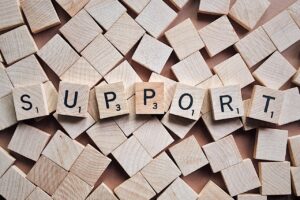Getting hooked on drugs or alcohol can ruin a life. Often, people struggling with addiction destroy their careers, finances, and families because they cannot stop getting drunk or high even as their world crumbles around them. They may seem to throw their progress away. Are they destined to struggle with substance abuse because of their genes? Is addiction a disease or a choice?
Struggling with addiction, regardless of how it started, requires help. If you or a loved one struggles with addiction, Northpoint Recovery can help. Call 888.296.8976 to speak with someone from our knowledgeable team about whether or not addiction is a choice, our substance abuse treatment programs, and other addiction recovery information that may be useful on your path to recovery.
What Is Addiction?
Taking substances or engaging in excessive behaviors often causes people to gain an increased tolerance, which means they will seek increasingly high doses to feel the same effects. This increased tolerance leads to mental and physical dependence, which causes the person to require the substance or behavior to function normally. Being dependent on a substance or behavior is a sure sign of addiction.
Many experts say addiction is a disease that forces people to abuse substances or behaviors even after experiencing adverse side effects. In other words, addiction is not a choice—it’s a disease that causes someone to compulsively seek out a substance or behavior even when they know it’s harmful.
What Is Addictive?
People quickly recognize that substances like drugs and alcohol are addictive but may not realize that things like work, pornography, and video games can also lead to addictive behavior.
Substance and behavior addictions work similarly and can destroy a person’s life. Addictive behaviors and substances often trigger the brain’s reward center, which in turn causes a person to feel temporarily happy. Once the activity is over or the drug wears off, the feeling ends. People who experience this often go back for more to feel it again.
Why Does Addiction Continue?
As addiction continues, it can often be recognized by symptoms like:
- An inability to control the use of the substance or behavior
- A preoccupation with the substance or behavior
- Persistent use despite negative consequences
- Cravings for the substance or behavior
People addicted to a substance or behavior will continue to seek it out even after it causes problems. Some experts say this is because addiction changes the brain, making quitting difficult. With continued use, the brain starts to adapt and change in response to the presence of the drug or behavior. These changes then make it difficult for people to function without it.
Recognizing Your Addiction
If you’re not sure you are struggling with an addiction, there are some signs to look for.
- Feeling like you can’t control your use
- Prioritizing the substance or behavior over other things
- Using despite negative consequences
- Feel withdrawal symptoms when you try to stop
There is no single cause of addiction, but genetics play a role. As many as 40 to 60 % of people with addiction have a family member who also struggles with substance abuse.
This may be because changes in the brain partly cause addiction. And, like other diseases caused by brain changes, genetics may make some people more likely to develop addiction than others.
This means that addiction can sometimes run in families. But it’s important to remember that even if addiction is partly caused by genetics, this doesn’t mean someone is doomed to become an addict. Many other factors contribute to addiction, including environment and trauma.
Find Addiction Treatment in Idaho at Northpoint Recovery
Is addiction a disease or a choice? Addiction is not a choice, but not getting professional help is a choice you don’t want to make. If you or a loved one is struggling with addiction, we can help. Your success in sobriety is our priority. Work directly with our compassionate team to create a recovery plan that works for you. There is no better time to start on the path to sobriety than now. Contact Northpoint Recovery today at 888.296.8976 to learn more.




